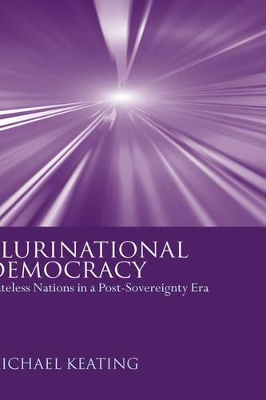Transnational integration and other challenges to the nation-state have deprived it of its mystique and broken the automatic link between state and nation. This has encouraged the revival of stateless nationalisms, but also provided new means for their accommodation. The author argues that these changes call for a radical rethinking of the nature of sovereignty and of the state itself to meet the twin challenges of recognition of nationality and of democracy. Drawing
on the experience of four plurinational states - United Kingdom, Spain, Belgium, and Canada - and of the European Union, he analyses the challenges of plurinationalism and its recognition.
Keating argues that we are not moving to a world without states, but to a complex political order with multiple sites of sovereign authority, and asymmetrical constitutional r s6ngements. This political order is new but at the same time old, as traditions of diffused authority and shared sovereignty, from before the rise of the nation-state, are rediscovered and rehabilitated. Democracy can no longer be confined to the framework of the nation-state but must extend to the new political spaces
which are emerging above and below the state. Political movements and public opinion in the stateless nations are increasingly embracing these ideas and are the harbingers of a post-sovereign political order.
- ISBN10 0199240760
- ISBN13 9780199240760
- Publish Date 15 November 2001 (first published 1 January 2001)
- Publish Status Active
- Publish Country GB
- Imprint Oxford University Press
- Format Hardcover
- Pages 212
- Language English
